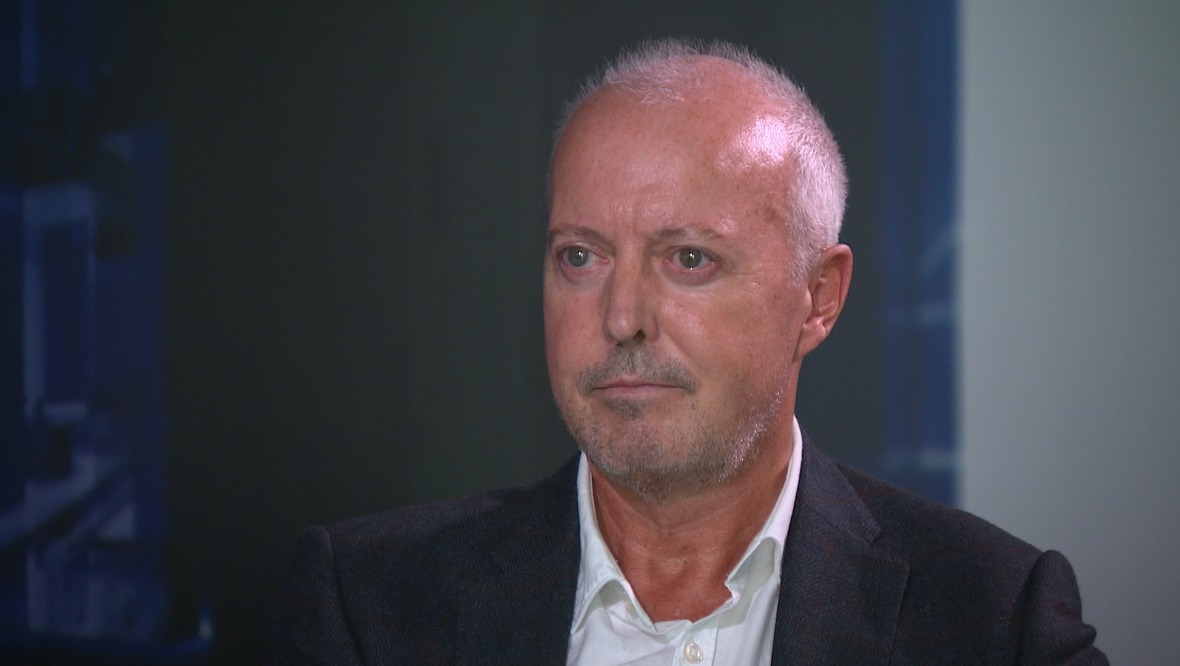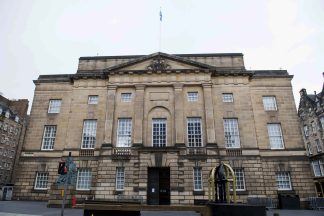A business expert who lost his £8.7m claim for allegedly being wrongly detained during a Rangers fraud probe has launched an appeal against the decision.
David Grier, 60, wanted compensation from Scots law enforcement agencies because he believed his arrest had ruined his reputation.
The Court of Session heard how Mr Grier was taken into custody during an investigation into alleged criminal wrongdoing at the club.
Detectives and prosecutors believed that the law had been broken during the time the club was sold to businessman Craig Whyte.
Prosecutors claimed that Mr Grier participated in a fraud with Mr Whyte. They claimed that Mr Whyte broke the law by using cash from a firm called Ticketus to acquire the finance to buy Rangers.
Mr Grier was detained and prosecuted alongside other men who were said to be involved in the alleged wrongdoing. However, everybody arrested during the probe was acquitted of any wrongdoing.
This prompted Mr Grier to launch a compensation action against the police and Crown Office. He claimed his arrest had affected his ability to maintain his high flying job in financial services.
His lawyers told judge Lord Tyre at the Court of Session that both law enforcement agencies had acted maliciously against him and that he should be entitled to compensation.
In a written judgement issued earlier this year, Lord Tyre ruled that Mr Grier’s lawyers hadn’t shown that the prosecution service had acted maliciously.
Now Mr Grier’s legal team have begun their appeal against Lord Tyre’s decision at the Inner House of the Court of Session.
On Thursday morning, advocate Andrew Smith QC told the court that Mr Grier’s lawyers would be able to address the court later this year.
He said Roddy Dunlop QC, the leader of the Faculty of Advocates had been instructed.
He said: “The Dean of Faculty has been instructed to act for the pursuer.”
During earlier proceedings, Lord Tyre heard how the Crown Office was headed at the time by Frank Mulholland QC – who now sits as high court judge Lord Mulholland.
Lord Tyre also heard claims that the police officer leading the investigation – Detective Chief Inspector Jim Robertson – had acted inappropriately during the investigation.
The court heard claims that he sang lyrics from what appeared to be a Rangers song to Philip Duffy, a colleague of Mr Grier’s at financial services firm Duff & Phelps.
The court also heard that DCI Robertson mishandled confidential documents which were protected by legal privilege during the investigation.
In a written judgement issued by Lord Tyre, the judge ruled that Mr Grier’s lawyers hadn’t shown that the prosecution service had acted maliciously.
But Lord Tyre also criticised senior officers involved in the investigation. He said some of DCI Robertson’s evidence was “evasive” and “unreliable” and that some of his actions during the probe were “reprehensible”.
Lord Tyre also concluded that some of the evidence given by DCI Robertson’s colleague – Detective Chief Inspector Jacqueline O’Neill, 47, – was “untruthful.”
In the judgement, Lord Tyre wrote about DCI Robertson’s behaviour during interviews with witnesses and of a search of offices belonging to Mr Grier’s employers Duff & Phelps.
The judgement tells of evidence which was found during the search.
Lord Tyre wrote: “As regards behaviour during interviews, there was evidence.. of unacceptable intimidatory and threatening behaviour by Mr Robertson during interviews.
“In other respects I found Mr Robertson’s evidence unsatisfactory. At the outset he attempted to decline to provide any oral evidence on the basis that his evidence was in his written statements, and he had to be instructed to answer questions.
“At some times he professed lack of memory because of the passage of time; at others he demonstrated a detailed recollection of events when it was in his interest to do so. I have not accepted his evidence on contentious matters without support from other sources.
“My impression was that Ms O’Neill was generally doing her best to assist the court. This was not the case, however, when she was asked questions about wrongdoing by Mr Robertson.
“I reject as untruthful her evidence that she did not discuss the finding of the cash flow schedule in the black folder during the search of Duff & Phelps’ office with Mr Robertson, and that she only noticed it in the folder because it was ‘obvious’.
“On other matters, however, I find no reason not to accept her evidence.”
The cases brought by Mr Grier come in the light of admissions made by the Crown in another case brought by businessmen David Whitehouse and Paul Clark.
Prosecutors admitted Mr Whitehouse and Mr Clark were wrongfully arrested and prosecuted – the two men sought a total of £20.8m from the Crown Office and Police Scotland.
But they later settled their action with each of them receiving £10.3m each – their legal bills, thought to be worth £3m each, were also paid for.
Earlier this year, former Rangers executive Charles Green was also told he was able to receive damages after the Crown admitted it had conducted a “malicious” prosecution against him. He received a £6.3m settlement.
Inner House judge Lord Pentland fixed a three day hearing to take place in October 2022 when civil appeal judges will hear legal arguments.
Follow STV News on WhatsApp
Scan the QR code on your mobile device for all the latest news from around the country


 STV News
STV News

























